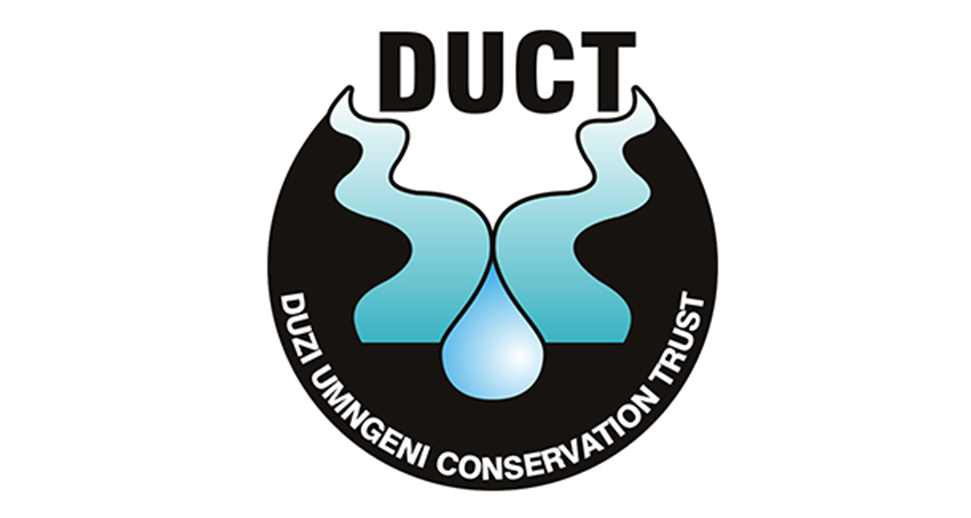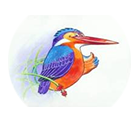This week is National Water Week and to mark the fact, Umgeni Water teamed up with the Duzi-uMngeni Conservation Trust (Duct) and schools in Edendale to clean up streams in Imbali and Dambuza.
The cleanup activity earlier this week came out of an ongoing educational programme that Duct is running with six schools in Edendale — four primary schools (Henryville, Mthethomusha, Slangspruit and Lungilsile) and two secondary schools (Kwapata and Fundokuhle).
Duct is dedicated to caring for the environmental health of the Msunduzi and Umgeni rivers and their surrounding catchments, and it operates on the basis that “healthy communities need healthy rivers”. Last year they approached various schools in Edendale that are situated close to rivers and streams, and invited them to become involved in monitoring and improving the health of these water courses.
“We are hoping eventually to get all schools that are close to rivers involved and get them to monitor the water health once a month,” says Duct manager Andrew Booth.
The pupils have been equipped with a “mini-Sass” to measure the health of nearby rivers and streams. This is a simplified version of the South African Scoring System (Sass) Version 5 Rapid Bioassessment Method for Rivers, which is used to assess the amount of plant life and animals in rivers as a means of determining the condition of the river. The mini version takes the shape of a reusable laminated form listing the various animals you might find in a river or stream and it provides a scoring system for each species, according to whether the river is categorised as sandy or rocky.
“The mini-Sass is not an instant measurement of a river’s health,” cautions Booth. “It’s not like taking a sample of water and measuring the ecoli — that is immediate. With Sass, you are looking at invertebrates in a river, and their presence, or lack of it, could be a reflection of a pollution spill in the last month that has affected and reduced the fauna. You have to monitor over time to measure the ups and downs to get a general idea of the river’s health.”
Last Wednesday, two Duct teams, along with representatives from Umgeni Water and the Department of Agriculture and Environmental Affairs and local school teachers, went to supervise cleanup sessions on two different streams, the KwaPata in Dambuza and the Slangspruit in Imbali.
On the banks of the Slangspruit, Duct environmental educator Wendy Ngcobo addressed the assembled Grade 6 pupils from Slangspruit and Lungisile primary schools. “We need to look after our water because we have less water,” she told them.
“The most important thing is not to litter, not just near the river, but anywhere, because eventually it gets washed down to the river.”
There was plenty of evidence of exactly that on the steep banks of the Slangspruit. Rubbish of every variety was there for the collecting, including household refuse that had clearly been dumped there. Black bags and latex gloves were then handed out to the assembled pupils who eagerly set about the task of cleaning up the river banks.
“What I tell the pupils depends on their age,” says Ngcobo. “The little ones, it’s the basics: the dangers of sewage and alien plants: ‘They drink our water’, I tell them.”
A mini-Sass of the Slangspruit turned up crabs, damsel flies, stoneflies, shrimps and a variety of other invertebrates, indicating that the river is in the 5,8 to 6,9 range of the scale which equates with “good” but also leaves room for improvement.
“The children love looking after the river,” says Thandanani Nxumalo, who teaches natural sciences and maths at Slangspruit Primary School. “They can find out for themselves that the water is not so unhealthy because there are animals living there.”
“We must look after our rivers,” says pupil Andiswa Hlengwa. “We get our water from rivers. With the Sass we can check the animals in the river, the smell of the river and the plants on the banks.”
Hlengwa was one of about 60 children who, in an hour or so, collected 230 bags of rubbish, piling them at the roadside for collection. Meanwhile, at KwaPata, 90 pupils from Henryville and Mthethomusha primary schools, and KwaPata Secondary School, collected 280 bags of rubbish. To mark Water Week and to reward their efforts, both teams were given lunch-packs, T-shirts and water bottles from Umgeni Water.
“It’s a wonderful experience when you show people the importance of water,” says Lungi Makhaye, social development co-ordinator at Umgeni Water, who has long been running school awareness programmes looking at issues of water pollution and conservation. “We targeted this area particularly and especially concentrated on the impact of litter on the river system.
“We did this in partnership with Duct as we knew they were already working on this and we didn’t want to duplicate what they were doing. It’s a working partnership.”
And it doesn’t end with Water Week, says Makhaye. “The children will be coming to the water education classroom at Umgeni to see how we measure the state of the river water that they cleaned today.”
“We are targeting children because they can spread the message passionately. If they start young they grow up with this attitude embedded in them. We try to make the children passionate but we also target educators. They are needed to promote water health as well, not just Umgeni Water and Duct.”
THE Duzi-uMngeni Conservation Trust (Duct) is a nonprofit public benefit organisation championing the environmental health of the Msunduzi and Umgeni rivers.
Background: Dusi Umngeni Conservation Trust (DUCT)
Duct was established in 2005 by a working group concerned about the state of the Msunduzi and Umgeni rivers. In February 2006, the group formally registered Duct as a Section 21 Company and employed a part-time manager.
DUCT: The Mission
To champion the environmental health of the Msunduzi and Umgeni rivers. Duct will continuously assess, monitor and implement various projects to enhance river health along the length of the Msunduzi and Umgeni rivers. By tackling issues around nine strategic areas, Duct will improve the health of the rivers for paddlers, other recreational users, farmers and local communities who utilise the rivers on a daily basis.
Facts: Eight focus areas
Solid waste (including plastic bags, bottles, tin cans and animal carcasses) that enters the rivers from a variety of sources, including illegal dumping.
Faecal waste from broken and blocked sewers and areas that are underserviced.
Industrial pollution.
Invasive alien vegetation along the river banks.
Invasive alien vegetation in the water.
Bilharzia and other waterborne diseases.
Soil erosion and land degradation.
Monitoring sand-winning operations.
Provision of water for the environment (environmental reserve).





































